Bubble Economy 2.0: The financial recovery plan from Hell
 Michael Hudson, argues that President Obama's 'recovery' plan will actually prevent recovery by diverting precious resources towards servicing debt thereby crowding out spending on goods and services. He argues that, instead, Obama should re-establish the practice of writing down of debts to reflect the debtor's ability to pay, restore the power of state attorneys general to bring financial fraud charges against the most egregious mortgage lenders, and for the re-establsihment of taxes on site-rental value, in order to discourage land speculation.
Michael Hudson, argues that President Obama's 'recovery' plan will actually prevent recovery by diverting precious resources towards servicing debt thereby crowding out spending on goods and services. He argues that, instead, Obama should re-establish the practice of writing down of debts to reflect the debtor's ability to pay, restore the power of state attorneys general to bring financial fraud charges against the most egregious mortgage lenders, and for the re-establsihment of taxes on site-rental value, in order to discourage land speculation.
Originally published on Global Research on 11 Feb 09.
Martin Wolf started off his Financial Times column today (February 11) with the bold question: "Has Barack Obama's presidency already failed?"[1] The stock market had a similar opinion, plunging 382 points. Having promised "change," Mr. Obama is giving us more Clinton-Bush via Robert Rubin's protégé, Tim Geithner. Tuesday's $2.5 trillion Financial Stabilization Plan to re-inflate the Bubble Economy is basically an extension of the Bush-Paulson giveaway - yet more Rubinomics for financial insiders in the emerging Wall Street trusts. The financial system is to be concentrated into a cartel of just a few giant conglomerates to act as the economy's central planners and resource allocators. This makes banks the big winners in the game of "chicken" they've been playing with Washington, a shakedown holding the economy hostage. "Give us what we want or we'll plunge the economy into financial crisis." Washington has given them $9 trillion so far, with promises now of another $2 trillion- and still counting.
A true reform - one designed to undo the systemic market distortions that led to the real estate bubble - would have set out to reverse the Clinton-Rubin repeal of the Glass-Steagall Act so as to prevent the corrupting conflicts of interest that have resulted in vertical trusts such as Citibank and Bank of America/Countrywide/Merrill Lynch. By unleashing these conglomerate grupos (to use the term popularized under Pinochet with Chicago Boy direction - a dress rehearsal of the mass financial bankruptcies they caused in Chile by the end of the 1970s) the Clinton administration enabled banks to merge with junk mortgage companies, junk-money managers, fictitious property appraisal companies, and law-evasion firms all designed to package debts to investors who trusted them enough to let them rake off enough commissions and capital gains to make their managers the world's highest-paid economic planners.
Today's economic collapse is the direct result of their planning philosophy. It actually was taught as "wealth creation" and still is, as supposedly more productive than the public regulation and oversight so detested by Wall Street and its Chicago School aficionados. The financial powerhouses created by this "free market" philosophy span the entire FIRE sector - finance, insurance and real estate, "financializing" housing and commercial property markets in ways guaranteed to make money by creating and selling debt. Mr. Obama's advisors are precisely those of the Clinton Administration who supported trustification of the FIRE sector. This is the broad deregulatory medium in which today's bad-debt disaster has been able to spread so much more rapidly than at any time since the 1920s.
The commercial banks have used their credit-creating power not to expand the production of goods and services or raise living standards but simply to inflate prices for real estate (making fortunes for their brokerage, property appraisal and insurance affiliates), stocks and bonds (making more fortunes for their investment bank subsidiaries), fine arts (whose demand is now essentially for trophies, degrading the idea of art accordingly) and other assets already in place.
The resulting dot.com and real estate bubbles were not inevitable, not economically necessary. They were financially engineered by the political deregulatory power acquired by banks corrupting Congress through campaign contributions and public relations "think tanks" (more in the character of Orwellian doublethink tanks) to promote the perverse fiction that Wall Street can be and indeed is automatically self-regulating. This is a travesty of Adam Smith's "Invisible Hand." This hand is better thought of as covert. The myth of "free markets" is now supposed to consist of governments withdrawing from planning and taxing wealth, so as to leave resource allocation and the economic surplus to bankers rather than elected public representatives. This is what classically is called oligarchy, not democracy.
This centralization of planning, debt creation and revenue-extracting power is defended as the alternative to Hayek's road to serfdom. But it is itself the road to debt peonage, a.k.a. the post-industrial economy or "Information Economy." The latter term is another euphemistic travesty in view of the kind of information the banking system has promoted in the junk accounting crafted by their accounting firms and tax lawyers (off-balance-sheet entities registered on offshore tax-avoidance islands), the AAA applause provided as "information" to investors by the bond-rating cartel, and indeed the national income and product accounts that depict the FIRE sector as being part of the "real" economy, not as an institutional wrapping of special interests and government-sanctioned privilege acting in an extractive rather than a productive way.
"Thanks for the bonuses," bankers in the United States and England testified this week before Congress and Parliament. "We'll keep the money, but rest assured that we are truly sorry for having to ask you for another few trillion dollars. At least you should remember our theme song: We are still better managers than the government, and the bulwark against government bureaucratic resource allocation." This is the ideological Big Lie sold by the Chicago School "free market" celebration of dismantling government power over finance, all defended by complex math rivaling that of nuclear physics that the financial sector is part of the "real" economy automatically producing a fair and equitable equilibrium.
This is not bad news for stockholders of more local and relatively healthy banks (healthy in the sense of avoiding negative equity). Their stocks soared and were by far the major gainers on Tuesday's stock market, while Wall Street's large Bad Banks plunged to new lows. Solvent local banks are the sort that were normal prior to repeal of Glass Steagall. They are to be bought by the large "troubled" banks, whose "toxic loans" reflect a basically toxic operating philosophy. In other words, small banks who have made loans carefully will be sucked into Citibank, Bank of America, JP Morgan Chase and Wells Fargo - the Big Four or Five where the junk mortgages, junk CDOs and junk derivatives are concentrated, and have used Treasury money from the past bailout to buy out smaller banks that were not infected with such reckless financial opportunism. Even the Wall Street Journal editorialized regarding the Obama Treasury's new "Public-Private Investment Fund" to pump a trillion dollars into this mess: "Mr. Geithner would be wise to put someone strong land independent in charge of this fund - someone who can say no to Congress and has no ties to Citigroup, Robert Rubin or Wall Street."[2]
None of this can solve today's financial problem. The debt overhead far exceeds the economy's ability to pay. If the banks would indeed do what Pres. Obama's appointees are begging them to do and lend more, the debt burden would become even heavier and buying access to housing even more costly. When the banks look back fondly on what Alan Greenspan called "wealth creation," we can see today that the less euphemistic terminology would be "debt creation." This is the objective of the new bank giveaway. It threatens to spread the distortions that the large banks have introduced until the entire system presumably looks like Citibank, long the number-one offender of "stretching the envelope," its euphemism for breaking the law bit by bit and daring government regulators and prosecutors to try and stop it and thereby plunging the U.S. financial system into crisis. This is the shakedown that is being played out this week. And the Obama administration blinked - as these same regulators did when they were in charge of the Clinton administration's bank policy. So much for the promised change!
The three-pronged Treasury program seems to be only Stage One of a two-stage "dream recovery plan" for Wall Street. Enough hints have trickled out for the past three months in Wall Street Journal op-eds to tip the hand for what may be in store. Watch for the magic phrase "equity kicker," first heard in the S&L mortgage crisis of the 1980s. It refers to the banker's share of capital gains, that is, asset price inflation in Bubble #2 that the Recovery Program hopes to sponsor.
The first question to ask about any Recovery Program is, "Recovery for whom?" The answer given on Tuesday is, "For the people who design the Program and their constituency" - in this case, the bank lobby. The second question is, "Just what is it they want to 'recover'?" The answer is, the Bubble Economy. For the financial sector it was a golden age. Having enjoyed the Greenspan Bubble that made them so rich, its managers would love to create yet more wealth for themselves by indebting the "real" economy yet further while inflating prices all over again to make new capital gains.
The problem for today's financial elites is that it is not possible to inflate another bubble from today's debt levels, widespread negative equity, and still-high level of real estate, stock and bond prices. No amount of new capital will induce banks to provide credit to real estate already over-mortgaged or to individuals and corporations already over-indebted. Moody's and other leading professional observers have forecast property prices to keep on plunging for at least the next year, which is as far as the eye can see in today's unstable conditions. So the smartest money is still waiting like vultures in the wings - waiting for government guarantees that toxic loans will pay off. Another no-risk private profit to be subsidized by public-sector losses.
While the Obama administration's financial planners wring their hands in public and say "We feel your pain" to debtors at large, they know that the past ten years have been a golden age for the banking system and the rest of Wall Street. Like feudal lord claiming the economic surplus for themselves while administering austerity for the population at large, the wealthiest 1% of the population has raised their appropriation of the nationwide returns to wealth - dividends, interest, rent and capital gains - from 37% of the total ten years ago to 57% five years ago and it seems nearly 70% today. This is the highest proportion since records have been kept. We are approaching Russian kleptocratic levels.
The officials drawn from Wall Street who now control of the Treasury and Federal Reserve repeat the right-wing Big Lie: Poor "subprime families" have brought the system down, exploiting the rich by trying to ape their betters and live beyond their means. Taking out subprime loans and not revealing their actual ability to pay, the NINJA poor (no income, no job, no audit) signed up to obtain "liars' loans" as no-documentation Alt-A loans are called in the financial junk-paper trade.
I learned the reality a few years ago in London, talking to a commercial banker. "We've had an intellectual breakthrough," he said. "It's changed our credit philosophy."
"What is it?" I asked, imagining that he was about to come out with yet a new magical mathematics formula?
"The poor are honest," he said, accompanying his words with his jaw dropping open as if to say, "Who would have guessed?"
The meaning was clear enough. The poor pay their debts as a matter of honor, even at great personal sacrifice and what today's neoliberal Chicago School language would call uneconomic behavior. Unlike Donald Trump, they are less likely to walk away from their homes when market prices sink below the mortgage level. This sociological gullibility does not make economic sense, but reflects a group morality that has made them rich pickings for predatory lenders such as Countrywide, Wachovia and Citibank. So it's not the "lying poor." It's the banksters' fault after all!
For this elite the Bubble Economy was a deliberate policy they would love to recover. The problem is how to start a new bubble to make yet another fortune? The alternative is not so bad - to keep the bonuses, capital gains and golden parachutes they have given themselves, and run. But perhaps they can improve in Bubble Economy #2.
The Treasury's newest Financial Stability Plan (Bailout 2.0) is only the first step. It aims at putting in place enough new bank-lending capacity to start inflating prices on credit all over again. But a new bubble can't be started from today's asset-price levels. How can the $10 to $20 trillion capital-gain run-up of the Greenspan years been repeated in an economy that is "all loaned up"?
One thing Wall Street knows is that in order to make money, asset prices not only need to rise, they have to go down again. Without going down, after all, how can they rise up? Without a crucifixion for the economy, how can there be a resurrection? The more frenetic the price fibrillation, the easier it is for computerized buy-and-sell programs to make money on options and derivatives.
So here's the situation as I see it. The first objective is to preserve the wealth of the creditor class - Wall Street, the banks and the other financial vehicles that enrich the wealthiest 1% and, to be fair within America's emerging new financial oligarchy, the richest 10% of the population. Stage One involves buying out their bad loans at a price that saves them from taking a loss. The money will be depicted to voters as a "loan," to be repaid by banks extracting enough new debt charges in the new rigged game the Treasury is setting up. The current loss will be shifted the onto "taxpayers" and made up by new debtors - in both cases labor, onto whose shoulders the tax burden has been shifted steadily, step by step since 1980.
An "aggregator" bank (sounds like "alligator," from the swamps of toxic waste) will buy the bad debts and put them in a public agency. The government calls this the "bad" bank. (This is Geithner's first point.) But it does good for Wall Street - by buying loans that have gone bad, along with loans and derivative guarantees and swaps that never were good in the first place. If the private sector refuses to buy these bad loans at prices the banks are asking for, why should the government pretend that these debt claims are worth more? Vulture funds are said to be offering about what they were when Lehman Brothers went bankrupt: about 22 cents on the dollar. The banks are asking for 75 cents on the dollar. What will the government offer?
Perhaps the worst alternative is that is now being promoted by the banks and vulture investors in tandem: the government will guarantee the price at which private investors buy toxic financial waste from the banks. A vulture fund would be happy enough to pay 75 cents on the dollar for worthless junk if the government were to provide a guarantee. The Treasury and Federal Reserve pretend that they simply would be "providing liquidity" to "frozen markets." But the problem is not liquidity and it is not subjective "market psychology." It is "solvency," that is, a realistic awareness that toxic waste and bad derivatives gambles are junk. Mr. Geithner has not been able to come to terms with how to value this - without bringing the Obama administration down in a wave of populist protest - any more than Mr. Paulson was able to carry out his original Tarp proposal along these lines.
The hardest task for today's banksters is to revive opportunities for creditors to make a new killing. (It's the economy that's being killed, of course.) This seems to be the aim of the Public/Private investment company that Mr. Geithner is establishing as the second element in his plan. The easiest free lunch is to ride the wave of a new bubble - a fresh wave of asset-price inflation to be introduced to "cure" the problem of debt deflation.
Here's how I imagine the ploy might work. Suppose a hapless family has bought a home for $500,000, with a full 100% $500,000 adjustable-rate mortgage scheduled to reset this year at 8%. Suppose too that the current market price will fall to $250,000, a loss of 50% by yearend 2009. Sometime in mid 2010 would seem to be long enough for prices to decline by enough to make "recovery" possible - Bubble Economy 2.0. Without such a plunge, there will be no economy to "rescue," no opportunity for Tim Geithner and Laurence Summers to "feel your pain" and pull out of their pocket the following package - a variant on the "cash for trash" swap, a public agency to acquire the $500,000 mortgage that is going bad, heading toward only a $250,000 market price.
The "bad bank" was not quite ready to be created this week, but the embryo is there. It will take the form of a public/private partnership (PPP) of the sort that Tony Blair made so notorious in Britain. And speaking of Mr. Blair, I am writing this from England, where almost every America-watcher I talk to has expressed amazement at Obama's performance last week idealizing England's counterpart to George Bush when it comes to unpopularity contests. Blair's tenure in office was a horror story, not something to be congratulated for. He privatized the railroads and entering into the disastrous public/private partnership that doubled, tripled or quadrupled the cost of public projects by adding on a heavy financial overhead. If Obama does not realize how he shocked Britain and much of Europe with his praise, then he is in danger of foisting a similar public/private financialized "partnership" on the United States.
The new public/private institution will be financed with private funds - in fact, with the money now being given to re-capitalize America's banks (headed by the Wall St. bank's that have done so bad). Banks will use the Treasury money they have received by "borrowing" against their junk mortgages at or near par to buy shares in a new $5 trillion institution created along the lines of the unfortunate Fanny Mae and Freddie Mac. Its bonds will be guaranteed. (That's the "public" part - "socializing" the risk.) The PPP institution will have the power to buy and renegotiate the mortgages that have passed into the hands of the government and other holders. This "Homeowner Rescue Trust" will use its private funding for the "socially responsible" purpose of "saving the taxpayer" and middle class homeowners by renegotiating the mortgage down from its original $500,000 to the new $250,000 market price.
Here's the patter talk you can expect, with the usual Orwellian euphemisms. The Homeowners Rescue PPP will appear as a veritable Savior Bank resurrected from the wreckage of Bubble #1. Its clients will be families strapped by their mortgage debt and feeling more and more desperate as the price of their major asset plummets more deeply into Negative Equity territory. To them, the new PPP will say: "We've got a deal to save you. We'll renegotiate your mortgage down to the current market price, $250,000, and we'll also lower your interest rate to just 5.50%, the new rate. This will cut your monthly debt charges by nearly two thirds. Not only can you afford to stay in your home, you will escape from your negative equity."
The family probably will say, "Great." But they will have to make a concession. That's where the new public/private partnership makes its killing. Funded with private money that will take the "risk" (and also reap the rewards), the Savior Bank will say to the family that agrees to renegotiate its mortgage: "Now that the government has absorbed a loss (in today's travesty of "socializing" the financial system) while letting let you stay in your home, we need to recover the money that's been lost. If we make you whole, we want to be made whole too. So when the time comes for you to sell your home or renegotiate your mortgage, our Homeowners Rescue PPP will receive the capital gain up to the original amount written off."
In other words, if the homeowner sells the property for $400,000, the Homeowners Rescue PPP will get $150,000 of the capital gain. If the home sells for $500,000, the bank will get $250,000. And if it sells for more, thanks to some new clone of Alan Greenspan acting as bubblemeister, the capital gain will be split in some way. If the split is 50/50 and the home sells for $600,000, the owner will split the $100,000 further capital gain with the Homeowners Rescue PPP. It thus will make much more through its appropriation of capital gains (the new debt-fueled asset-price inflation being put in place) than it extracts in interest!
This would make Bubble 2.0 even richer for Wall Street than the Greenspan bubble! Last time around, it was the middle class that got the gains - even if new buyers had to enter a lifetime of debt peonage to buy higher-priced homes. It really was the bank that got the gains, of course, because mortgage interest charges absorbed the entire rental value and even the hoped-for price gain. But homeowners at least had a chance at the free ride, if they didn't squander their money in refinancing their mortgages to "cash out" on their equity to support their living standards in a generation whose wage levels had stagnated since 1979. As Mr. Greenspan observed in testimony before Congress, a major reason why wages have not risen is that workers are afraid to strike or even to complain about being worked harder and harder for longer and longer hours ("raising productivity"), because they are one paycheck away from missing their mortgage payment - or, if renters, one paycheck or two away from homelessness.
This is the happy condition of normalcy that Wall Street's financial planners would like to recover. This time around, they may not be obliged to make their gains in a way that also makes middle class homeowners rich. In the wake of Bubble Economy #1, today's debt-strapped homeowners are willing to settle merely for a plan that leaves them in their homes! The Homeowners Rescue PPP can appropriate for its stockholder banks and other large investors the capital gains that have been the driving force of U.S. "wealth creation," bubble-style. That is what the term "equity kicker" means.
This situation confronts the economy with a dilemma. The only policies deemed politically correct these days are those that make the situation worse: yet more government money in the hope that banks will create yet more credit/debt to raise house prices and make them even more unaffordable; credit/debt to inflate a new Bubble Economy #2.
Lobbyists for Wall Street's enormous Bad Bank conglomerates are screaming that all real solutions to today's debt problem and tax shift onto labor are politically incorrect, above all the time-honored debt write-downs to bring the debt burden within the ability to pay. That is what the market is supposed to do, after all, by bankruptcy in an anarchic collapse if not by more deliberate and targeted government policy. The Bad Banks, having demanded "free markets" all these years, fear a really free market when it threatens their bonuses and other takings. For Wall Street, free markets are "free" of public regulation against predatory lending; "free" of taxing the wealthy so as to shift the burden onto labor; "free" for the financial sector to wrap itself around the "real" economy like parasitic ivy around a tree to extract the surplus.
This is a travesty of freedom. As the putative neoliberal Adam Smith explained, "The government of an exclusive company of merchants, is, perhaps, the worst of all governments." But worst of all is the "freedom" of today's economic discussion from the wisdom of classical political economy and from historical experience regarding how societies through the ages have coped with the debt overhead.
How to save the economy from Wall Street
There is an alternative to ward all this off, and it is the classic definition of freedom from debt peonage and predatory credit. The only real solution to today's debt overhang is a debt write-down. Until this occurs, debt service will crowd out spending on goods and services and there will be no recovery. Debt deflation will drag the economy down while assets are transferred further into the hands of the wealthiest 10 percent of the population, operating via the financial sector.
If Obama means what he says, he would use his office as a bully pulpit to urge repeal the present harsh creditor-oriented bankruptcy law sponsored by the banks and credit-card companies. He would campaign to restore the long-term trend of laws favoring debtors rather than creditors, and introduce legislation to restore the practice of writing down debts to reflect the debtor's ability to pay, imposing market reality to debts that are far in excess of realistic valuations.
A second policy would be to restore the power of state attorneys general to bring financial fraud charges against the most egregious mortgage lenders - the prosecutions that the Bush Administration got thrown out of court by claiming that under an 1864 National Bank Act clause, the federal government had the right to override state prosecutions of national banks - and then appointing a non-prosecutor to this enforcement position.
On the basis of reinstated fraud charges, the government might claw back the bank bonuses, salaries and bank earnings that represented the profits from America's greatest financial and real estate fraud in history. And to prevent repetition of the past decade's experience, the Obama Administration might help popularize a new psychology of debt. The government could encourage "the poor" to act as "economically" as Donald Trumps or Angelo Mozilo's would do, making it clear that debt write-downs are a right.
Also to ward off repetition of the Bubble Economy, the Treasury could impose the "Tobin tax" of 1% on purchases and options for stocks, bonds and foreign currency. Critics of this tax point out that it can be evaded by speculators trading offshore in the rights to securities held in U.S. accounts. But the government could simply refuse to provide deposit insurance and other support to institutions trading offshore, or simply could announce that trades in such "deposit receipts" for shares would not have legal standing. As for trades in derivatives, depository institutions - including conglomerates owning such banks - can simply be banned as inherently unsafe. If foreigners wish to speculate on financial horse races, let them.
Financial policy ultimately rests on tax policy. It is the ability to levy taxes, after all, that gives value to Treasury money (just as it is the inability to collect on debts that has depreciated the value of commercial bank deposits). It is easy enough for fiscal policy to prevent a new real estate bubble. Simply shift the tax system back to where it originally was, on the land's site-rental value. The "free lunch" (what John Stuart Mill called the "unearned increment" of rising land prices, a gain that landlords made "in their sleep") would serve as the tax base instead of burdening labor and industry with income taxes and sales taxes. This would achieve the kind of free market that Adam Smith, John Stuart Mill and Alfred Marshall described, and which the Progressive Era aimed to achieve with America's first income tax in 1913. It would be a market free of the free lunch that Chicago Boys insist does not exist. But the recent Bubble Economy and today's Bailout Sequel have been all about getting a free lunch.
A land tax would prevent housing prices from rising again. It is the most hated tax in America today, largely because of the disinformation campaign that has been mounted by the real estate interests and amplified by the banks that stand behind them. The reality is that taxing land appreciation rather than wages or corporate profits would save homeowners from having to take on so much debt in order to obtain housing. It would save the economy from seeing "wealth creation" take the form of the "unearned increment" being capitalized into higher bank loans with their associated carrying charges (interest and amortization).
The wealth tax originally fell mainly on real estate. The most immediate and politically feasible priority of the Obama Administration thus should be to repeal the Bush Administration's drastic tax cuts for the top brackets and its moratorium on the estate tax. The aim should be to bring down the polarization between creditors and debtors that has concentrated over two-thirds of the returns to wealth in the richest 1% of the population.
If alternatives to the Bubble Economy such as these are not promoted, we will know that promises of change were mere rhetoric, Tony Blair style.
[1] Martin Wolf, "Why Obama's new Tarp will fail to rescue the banks," Financial Times, Feb. 11, 2009.
[2] "Geithner at the Improv," Wall Street Journal editorial, February 11, 2009.
Michael Hudson is a frequent contributor to Global Research. Global Research Articles by Michael Hudson
See also: "A crisis is a terrible thing to waste" of 14 Feb 09, "Why we should think carefully about Rudd's $42 billion Nation Building and Jobs Plan" of 6 Feb 09.



 The final version of Jaws dwarfs all the others. This new monster is eating towns up alive. This is not just a battle to the death; this is WAR! In the novel, Jaws, the monster was not really a white pointer shark, it was the property development lobby, which metastasized with the colonisation of a modest fishing town by rich people from other places. Developers drew power from the wealthy tourists and sea-changers. They took over the original fishing town for their own purposes and democracy seemed fatally wounded. Right to the point of the shark (the developers) trying to eat the boat (symbol of the fishing industry which had begun the town). Until an odd bunch of people had the guts to stand up to the big developers.
The final version of Jaws dwarfs all the others. This new monster is eating towns up alive. This is not just a battle to the death; this is WAR! In the novel, Jaws, the monster was not really a white pointer shark, it was the property development lobby, which metastasized with the colonisation of a modest fishing town by rich people from other places. Developers drew power from the wealthy tourists and sea-changers. They took over the original fishing town for their own purposes and democracy seemed fatally wounded. Right to the point of the shark (the developers) trying to eat the boat (symbol of the fishing industry which had begun the town). Until an odd bunch of people had the guts to stand up to the big developers. 

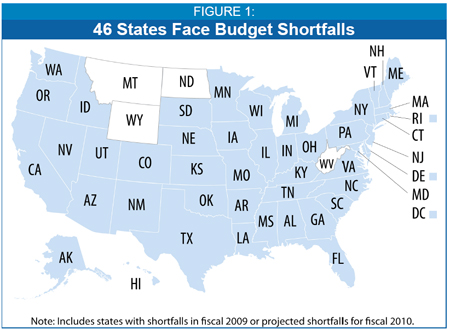



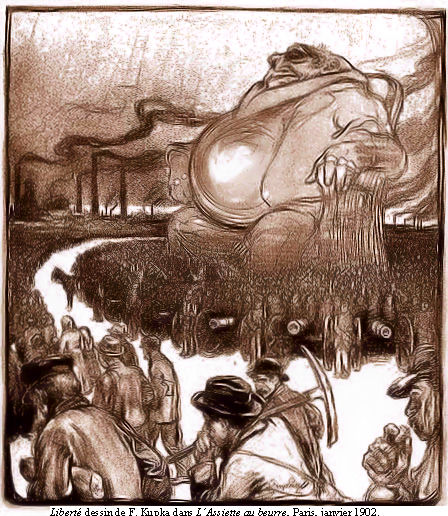

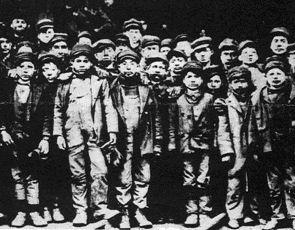
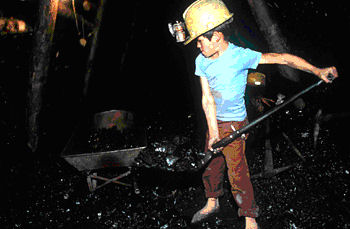

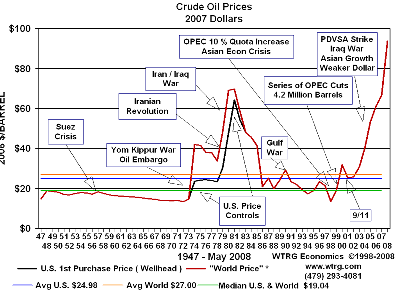
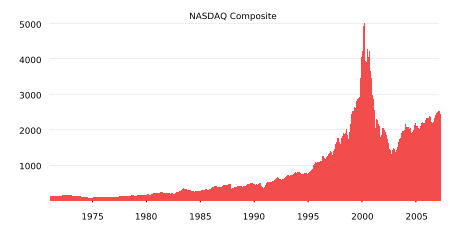
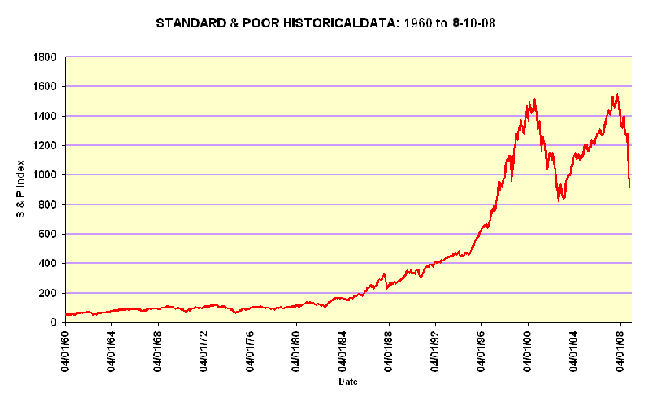




 Film: "Australia's Murray River Murray Darling Disaster"
Film: "Australia's Murray River Murray Darling Disaster" Lateline film on COAG, "New Deadline to Save Murray Darling" 7 August 2008)
Lateline film on COAG, "New Deadline to Save Murray Darling" 7 August 2008)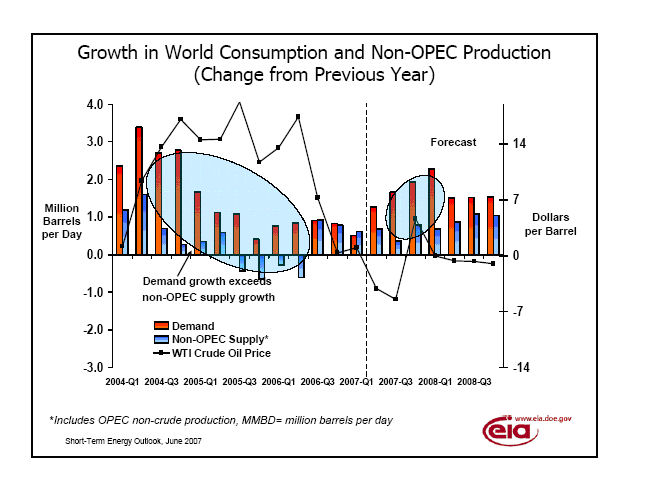
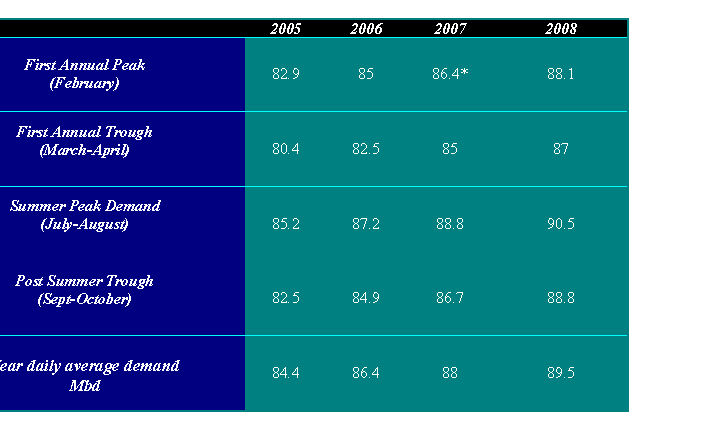
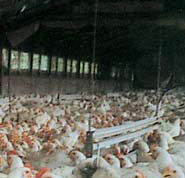
 Tim Murray
Tim Murray


 It is amazing that so many of us accept that it is our lot to work for others and to pay rent. Was it always so or did this come about through sophistry?
It is amazing that so many of us accept that it is our lot to work for others and to pay rent. Was it always so or did this come about through sophistry?
Recent comments